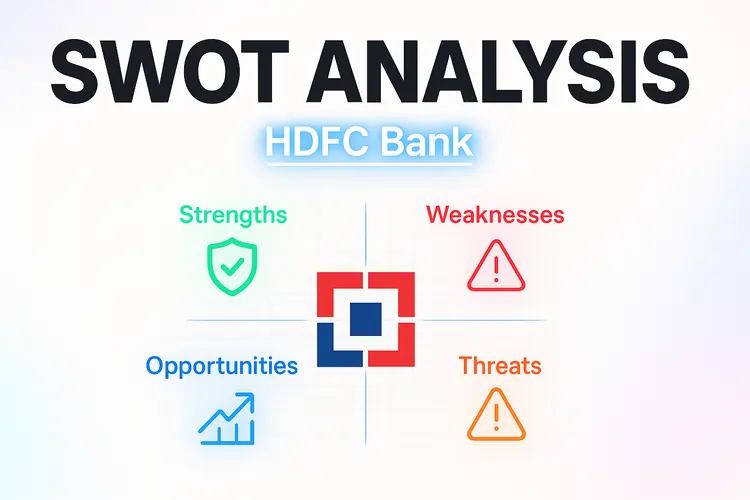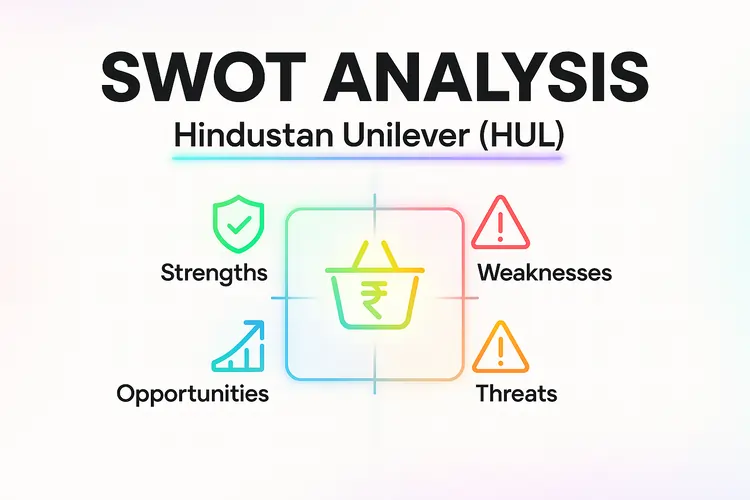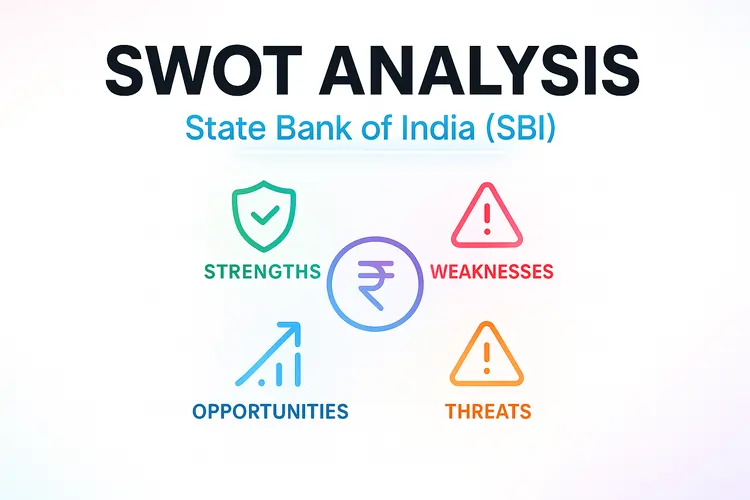Google Ads vs SEO is the question every business owner asks. Should you invest in Google Ads campaigns for quick results, or build traffic through SEO services in Delhi for the long game?
The truth is simple: Google Ads delivers instant visibility, while SEO builds sustainable authority. In fact, many Indian brands use both to balance speed and long-term growth. By working with a Google Partner digital marketing agency, you align campaigns with real business results, not just traffic.
So, which strategy should you choose? Google Ads services help you dominate Page 1 today, while SEO strategies secure rankings for tomorrow. In this guide, we compare both, highlight pros and cons, and reveal when to combine them for maximum ROI.
Google Ads vs SEO depends on your goals.
Google Ads gives instant visibility and fast leads.
SEO builds trust, organic rankings, and long-term traffic.
Smart businesses combine both for speed today and growth tomorrow.
What is Google Ads?
Google Ads is Google’s pay-per-click advertising platform. It helps businesses show their brand on the first page instantly. Instead of waiting months for SEO, you can launch Google Search Ads campaigns and start driving traffic today.
With Google Ads services in India, you bid on keywords and only pay when users click. As a result, every rupee goes toward reaching people who are actively searching. This speed makes Google Ads one of the fastest ways to get qualified leads.
Businesses also scale reach with video campaigns. Many brands work with a YouTube Ads agency to run targeted video ads. And with the support of a certified Google Partner PPC agency, campaigns stay optimized for clicks, conversions, and measurable ROI.
Why Google Ads is Important for Your Business
Google Ads for businesses in India offers speed, control, and measurable growth. While SEO takes months, Google Search Ads put your brand on Page 1 within hours.
The biggest benefit is control. You set budgets, select keywords, and target by city, device, or audience. As a result, PPC campaigns focus on people who are ready to buy, not casual browsers.
Another reason Google Ads is powerful is ROI tracking. You see clicks, calls, and conversions in real time. With the help of a certified Google Partner PPC agency, you optimize campaigns faster and spend smarter.
Finally, Google Ads services in Delhi or other cities help local brands compete with bigger players. That’s why startups, e-commerce brands, and local shops use PPC to capture leads from day one.
Instant Visibility: The Need for Speed in Marketing
Google Ads gives instant visibility on Page 1 of Google. Unlike SEO, which takes months, Google Search Ads campaigns put your business in front of customers within hours.
For example, imagine launching a bakery, gym, or coaching class in Delhi. With Google Ads services in Delhi, you appear for searches like “best bakery near me” or “digital marketing agency Delhi.” As a result, you attract buyers immediately.
This speed gives startups and small businesses a real advantage. They can generate sales and awareness from day one. And with a certified Google Partner PPC agency, campaigns stay optimized for maximum clicks and conversions.
Highly Targeted Advertising: Reaching Your Ideal Customer
Google Ads targeting gives you precision that SEO alone cannot. You decide who sees your ads, when they see them, and where. With Google Search Ads, you reach users already searching for products like yours.
For example, a yoga studio can show ads for “yoga classes for beginners” only to people nearby. Similarly, an e-commerce brand can run YouTube Ads campaigns to target shoppers by age, interests, and behavior. As a result, ad spend is never wasted.
This level of targeting ensures PPC advertising in India drives qualified leads instead of random clicks. And with guidance from a Google Partner PPC agency, you can scale campaigns while keeping costs under control.
Budget Control: Spend Smart, Not Hard
Google Ads budget control gives you full flexibility. You decide daily spends, keyword bids, and campaign limits. Unlike traditional ads, Google Search Ads let you stop or scale campaigns instantly.
For example, you can start with a ₹500 daily budget. If a campaign performs well, you raise bids. As a result, PPC campaigns in India work for both startups with small spends and large brands with higher budgets.
The best part is control. You never overspend. With support from a certified Google Partner PPC agency, your budget is optimized for maximum ROI.
Detailed Analytics: Know What’s Working
Google Ads analytics gives you clear insights into performance. You track clicks, calls, impressions, and conversions in real time. Unlike offline ads, Google Search Ads campaigns show exactly where your money goes.
As a result, you can improve fast. If a keyword drives clicks but no sales, you adjust bids or ad copy. This flexibility ensures PPC tracking in India stays data-driven, not guesswork.
With expert guidance from a Google Partner PPC agency, you refine campaigns continuously. Every report becomes a roadmap to higher ROI.
Pros and Cons of Google Ads
Google Ads for businesses in India comes with clear advantages and a few challenges. Understanding both helps you decide when PPC is the right fit.
Pros:
- Fast results: You start getting clicks and leads as soon as your campaign goes live.
- Targeted reach: Ads show by keyword, city, device, or audience interest. As a result, budgets stay efficient.
- Scalable campaigns: Start with a small spend, then increase budgets as results improve.
- Measurable ROI: Google Search Ads provide detailed tracking of clicks, calls, and conversions.
Cons:
- High costs: In competitive industries, cost per click rises quickly.
- Needs expertise: Without proper management, ad spend gets wasted. That’s why many brands work with a Google Partner PPC agency.
- Short-term impact: Traffic stops the moment you pause campaigns.
- Ad fatigue: If creatives don’t refresh often, click-through rates drop over time.
How Google Ads Are Game Changers in 2025
Google Ads in 2025 continues to transform how businesses reach customers. With AI-driven automation, new ad formats, and advanced analytics, PPC campaigns in India deliver faster and smarter results than ever.
AI-Powered Ads: Smarter Targeting
Machine learning now adjusts bids, audiences, and placements automatically. As a result, even small brands running Google Search Ads can compete with bigger players by letting AI optimize performance in real time.
New Ad Formats: More Ways to Engage
Google Ads services in India now include Discovery Ads, Video Action campaigns, and AI-generated creative assets. For example, brands working with a YouTube Ads agency can run highly engaging video campaigns that reach buyers across YouTube, Gmail, and the Discover feed.
Advanced Analytics: Data-Driven Growth
In 2025, Google Ads analytics provides deeper insights into clicks, calls, and sales funnels. With support from a certified Google Partner PPC agency, brands refine strategies quickly, cut waste, and scale what works.
What is SEO?
SEO, or Search Engine Optimization, is the process of improving your website to rank higher on Google. Unlike paid ads, SEO services bring long-term, organic traffic without paying per click.
SEO in India is built on three pillars: on-page, off-page, and technical optimization. For example, SEO Company in Delhi may improve content and keywords (on-page), build backlinks (off-page), and fix site speed (technical). As a result, your website becomes both search-friendly and user-friendly.
Brands prefer SEO because it builds credibility. High organic rankings signal trust. With guidance from the Best SEO Company in India, businesses attract sustainable traffic, reduce ad spend, and strengthen long-term authority.
The Three Pillars of SEO: On-Page, Off-Page, and Technical SEO
SEO in India works on three main pillars: on-page SEO, off-page SEO, and technical SEO. Each plays a role in boosting visibility and rankings.
- On-Page SEO: This includes keyword optimization, headings, and internal linking. For example, a Delhi SEO company may improve titles, meta descriptions, and content for better search visibility.
- Off-Page SEO: This builds authority with backlinks, guest posts, and influencer mentions. As a result, your website gains credibility and higher trust signals.
- Technical SEO: This focuses on site speed, mobile-friendliness, and secure HTTPS connections. With guidance from the Technical SEO experts at The DM School, brands improve crawlability and user experience.
Together, these three pillars ensure SEO services in India deliver long-term, compounding traffic growth instead of short-term spikes.
Why SEO is Crucial for Long-Term Success
SEO services in India may take time, but they deliver sustainable results. Unlike PPC, where traffic stops once you pause ads, SEO keeps attracting visitors month after month.
The biggest advantage is trust. When users see your site ranking high, they view your brand as credible. With the Best SEO Company in India, businesses improve authority and attract organic leads without ongoing ad spend.
Another benefit is user experience. Google rewards sites that load fast, work well on mobile, and deliver value. For example, a Delhi SEO agency can optimize speed, content, and design so users stay longer and convert more often.
As a result, SEO for Indian businesses builds long-term growth. It reduces reliance on ads, strengthens brand trust, and drives compounding traffic over time.
Sustainable Traffic: The Gift That Keeps on Giving
SEO traffic in India is sustainable. Once you rank, visitors keep coming without daily ad costs. As a result, your cost per lead drops over time, making SEO a compounding investment.
Builds Trust and Credibility: The Power of Organic Search
High rankings signal authority. Users know organic results are earned, not bought. With the Best SEO Company in India, brands position themselves as trusted leaders in their industry.
Better User Experience: A Win-Win for Everyone
SEO in Delhi also improves user experience. A Delhi SEO agency can optimize page speed, mobile design, and navigation. As a result, users stay longer, bounce rates fall, and conversions rise.
Adaptability: Staying Ahead of Algorithm Changes
SEO strategies in India adapt as Google updates algorithms. For example, Core Web Vitals now focus on speed and stability. With expert Technical SEO services, businesses stay compliant and maintain rankings even as search evolves.
Pros and Cons of SEO
SEO services in India have clear benefits, but also some challenges. Knowing both helps businesses choose when to invest in SEO for long-term growth.
Pros:
- Cost-effective: After initial setup, SEO services keep driving free traffic without ongoing ad spend.
- Builds credibility: High organic rankings show trust. With the Best SEO Company in India, brands gain authority faster.
- Sustainable traffic: Unlike PPC, SEO continues delivering leads even when budgets are tight.
- Higher click-through rates: Organic listings often attract more clicks than paid ads.
- Competitive edge: With a Delhi SEO company, you can outrank local competitors and capture more market share.
Cons:
- Slow results: SEO may take months before rankings improve significantly.
- Continuous effort: Content, backlinks, and optimization require ongoing work to maintain visibility.
- Complex and changing: Google updates often affect rankings. That’s why Technical SEO services are crucial for stability.
- No guarantees: Even with strong strategies, competitors and algorithm changes can impact outcomes.
SEO in 2025: What’s New?
SEO in 2025 is smarter, faster, and more user-focused. Search engines reward websites that combine authority, speed, and relevance. Businesses using SEO services in India must adapt to these trends to stay visible.
E-A-T: Expertise, Authoritativeness, Trustworthiness
Google now prioritizes E-A-T. Content must show expertise and come from trusted sources. With the Best SEO Company in India, brands create authoritative content that ranks higher.
Core Web Vitals: Speed and User Experience
Core Web Vitals remain crucial in 2025. Fast load times and stable layouts improve rankings. A Technical SEO service provider ensures your site meets all performance standards.
Voice Search Optimization
More people use smart speakers and assistants. Voice search SEO in India focuses on long-tail, conversational keywords. As a result, brands reach customers through natural, spoken queries.
Mobile-First Indexing
Google uses mobile versions for ranking. Businesses must ensure responsive design. Partnering with a Delhi SEO agency helps optimize mobile speed, usability, and content structure.
AI and Machine Learning
AI plays a bigger role in SEO strategies in 2025. Algorithms like RankBrain and BERT understand search intent better. With expert SEO consultants in India, businesses can create user-first content that adapts to AI-driven search.
Google Ads vs SEO: Key Differences in 2025
Google Ads vs SEO is a common debate for businesses in India. Both strategies work, but they serve different goals. Here’s a mobile-friendly breakdown of the differences.
💰 Cost
Google Ads: Paid per click (PPC).
SEO: Organic rankings, no direct cost per click.
⏱ Time to Results
Google Ads: Instant visibility.
SEO: Takes months for significant results.
👁 Visibility
Google Ads: Temporary, budget-dependent.
SEO: Long-term with consistent effort.
📈 Traffic Source
Google Ads: Paid traffic.
SEO: Organic traffic from search engines.
🎯 Control
Google Ads: High control over targeting and budget.
SEO: Less control, depends on search algorithms.
📊 ROI Tracking
Google Ads: Easy to measure with detailed analytics.
SEO: Requires advanced tools and long-term tracking.
🚀 Best For
Google Ads: Quick results, short-term promotions.
SEO: Long-term growth and brand authority.
When to Use Google Ads vs SEO
Google Ads vs SEO isn’t an either-or choice. The right strategy depends on your business goals, budget, and timeline. Here’s a simple breakdown.
📢 When to Use Google Ads
- You need immediate results: Launching a new product or campaign? Ads deliver instant traffic.
- You’re targeting high-intent keywords: Perfect for users ready to buy now.
- You have a flexible budget: PPC scales as you increase ad spend.
- You want to test keywords: Run quick ad campaigns to find profitable keywords before SEO investment.
🌱 When to Use SEO
- You’re focused on long-term growth: SEO builds compounding visibility and traffic.
- You want brand authority: High rankings signal trust and expertise in your niche.
- You’re working with a limited budget: Organic growth reduces dependency on continuous ad spend.
- You’re targeting informational keywords: SEO is ideal for blogs, guides, and awareness-driven content.
Combining Google Ads and SEO: A Winning Strategy
Google Ads and SEO together compound growth. Ads bring speed. SEO builds durable visibility. The mix maximizes leads and ROI.
🎯 Cover the Full Funnel
Use Ads for high-intent keywords today. Use SEO to rank for discovery and comparison terms. Together, they power your
digital marketing funnel.
📊 Share Data Both Ways
Let winning PPC keywords guide SEO pages. Let top SEO pages inspire ad copy and audiences. This feedback loop lowers CAC.
🧱 Dominate the SERP
Run ads and rank organically for the same terms. More listings mean more clicks and stronger brand recall.
💸 Budget Efficiency
Shift spend from keywords where SEO ranks well. Push PPC on new, seasonal, or high-CPL terms. Keep ROI stable as you scale.
✅ Proof + Execution
See real outcomes in our case studies.
Explore all digital marketing services we use to implement this mix.
Ready to plan your blend? Book a free strategy call.
Book a Free 30-Minute Consultation
Still unsure whether to invest in Google Ads or SEO in 2025? Our team at
The DM School – Digital Marketing Agency in Delhi
can help. We’ll analyze your business, audit your current efforts, and create a custom plan.
📌 What We Cover in 30 Minutes
- Clear audit of your SEO strategy and paid ads.
- Opportunities to improve conversions with Google Ads services.
- Actionable roadmap for digital marketing growth in 2025.
- Personalized answers to your marketing questions.
🚀 Why Book Now
The right SEO services in India or paid ads setup can double your ROI. Don’t wait months guessing—get expert clarity today.


